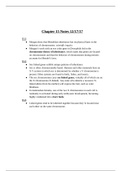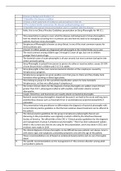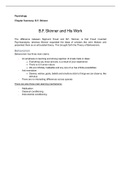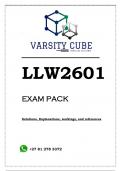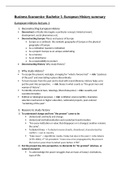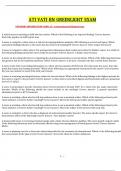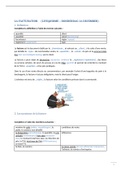Essay
A* Essay on Conscience
- Module
- Conscience
- Institution
- OCR
The question does not specifically mention Aquinas or Freud but the mention of divine powers within the conscience alludes to Aquinas. This means that it is imperative to discuss Freud. This essay is rather long, but something similar may be achieved under timed conditions.
[Show more]




